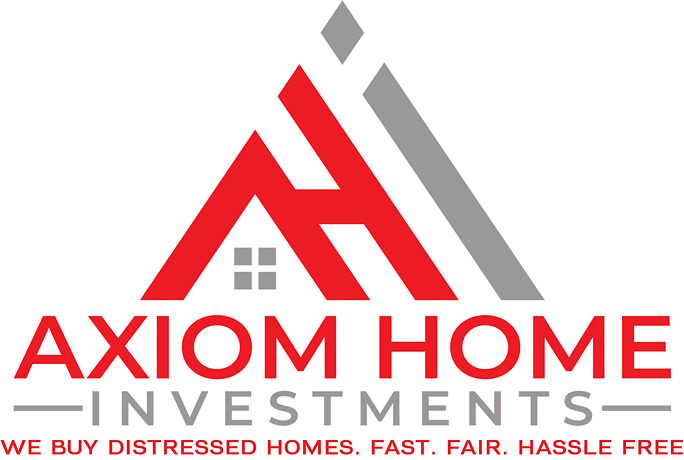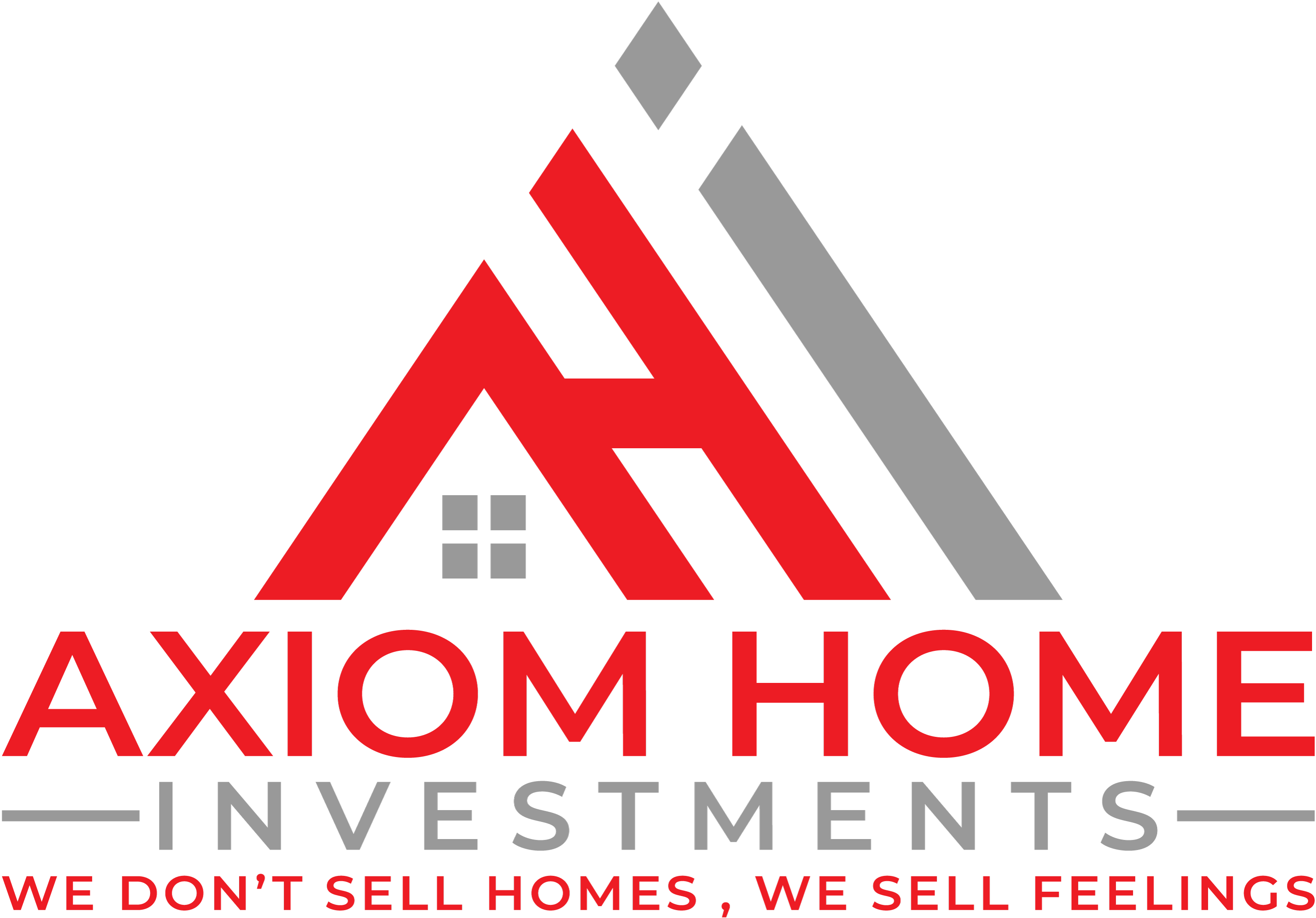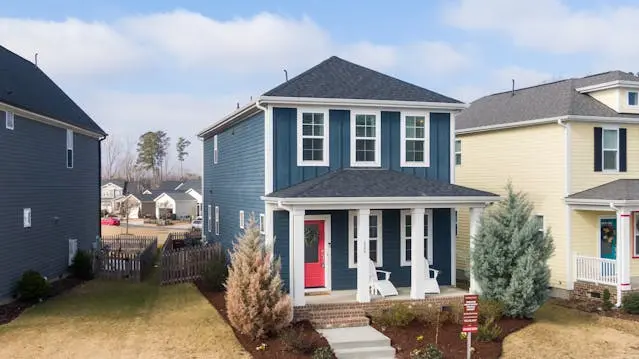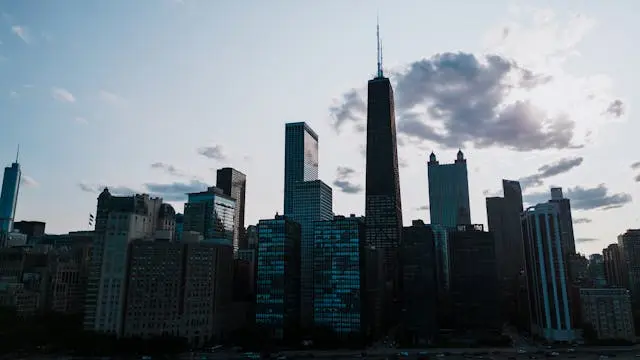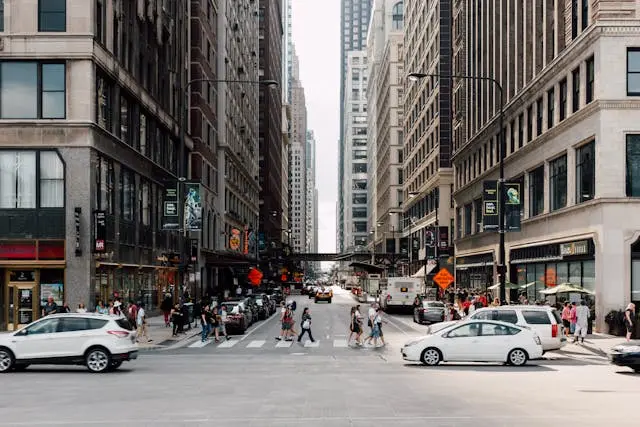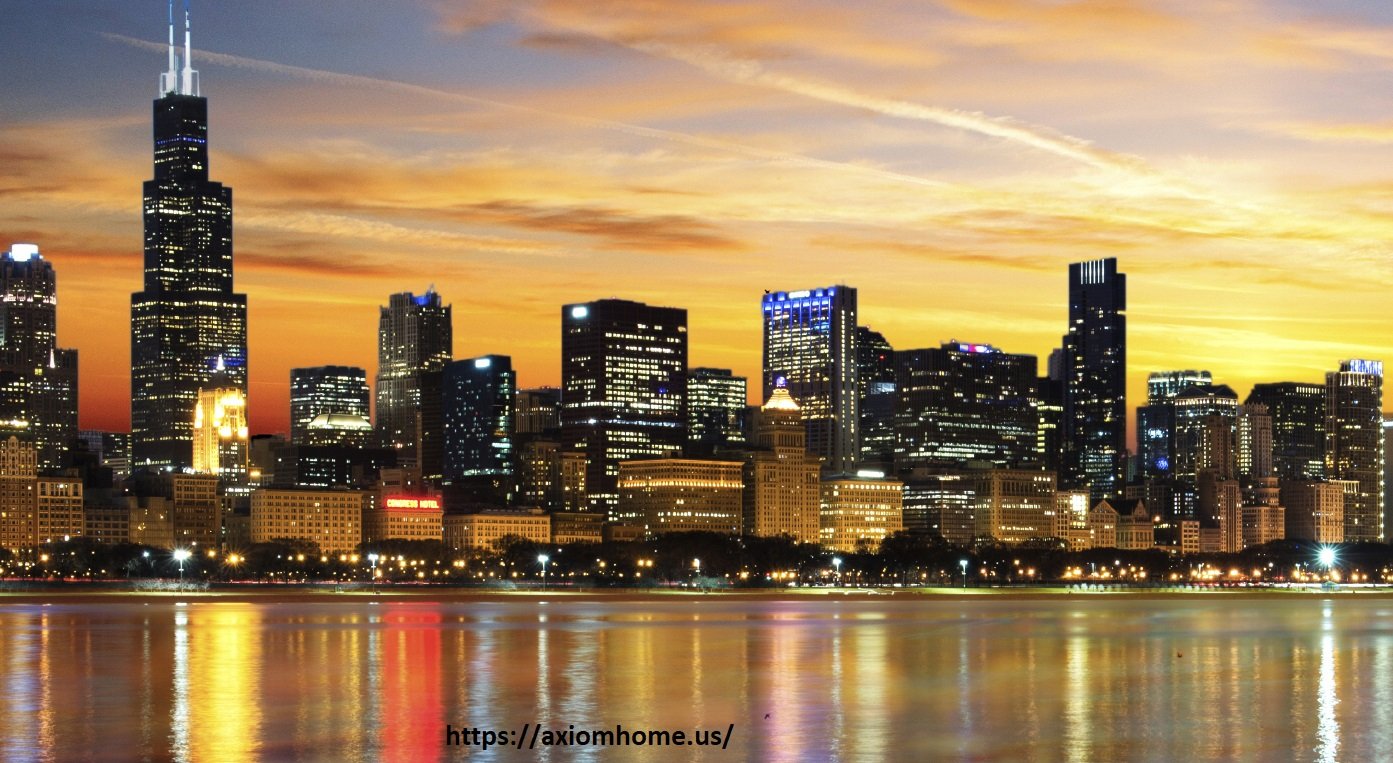CHICAGO REAL ESTATE MARKET 2025
There’s something brewing in the Chicago real estate market in 2025—something that’s less about towering skylines and luxury condos, and more about a subtle reshuffling of priorities. While investors once chased after high-rise penthouses and coveted lakefront views, today, the spotlight is quietly shifting toward undervalued pockets of land far from downtown’s hustle. It’s not just about buildings anymore. It’s about land—cheap, available, and full of potential. And the trend isn’t isolated. It’s part of a much broader shift in how we think about urban growth, ownership, and opportunity.
Chicago Real Estate Market 2025: Cheap Land, Big Shifts
In the wake of global disruption, economic uncertainty, and the permanent blending of remote work into daily life, Chicago is redefining itself. The real estate market has always had a pulse of its own, but in 2025, it’s beating to a new rhythm. The focus is no longer centered solely on what exists today but on what could exist tomorrow. This change is most visible in two places: the rebirth of neglected city zones and the rising demand for cheap land near Chicago. The two trends seem contradictory on the surface, but together, they tell a deeper story.

A City in Flux
Chicago’s core remains vital. It’s the seat of finance, culture, education, and commerce in the Midwest. But after several years of rapid inflation, high interest rates, and a growing dissatisfaction with unaffordable housing, residents and developers alike are asking: what now? The answer isn’t just to build more, but to build smarter.
Incentives from the city are pushing developers to rethink their game. Older office towers that once sat half-empty are becoming mixed-use buildings—half apartments, half co-working spaces. Neighborhoods that hadn’t seen investment in decades, like parts of South Shore or Englewood, are drawing attention not because of trendy cafes, but because of land values. Renovation, repurposing, rezoning—it’s all part of the new real estate language. Everyone from solo investors to institutional developers are having the same thought: maybe there’s gold in what everyone else forgot.
The Hunt for Cheap Land Near Chicago
Just a short drive from the city’s edge, a quiet revolution is taking shape. While home prices in urban centers skyrocket, people are looking outward. Way outward. Counties like Will, Kankakee, and Kendall—places once dismissed as too remote—are attracting attention. Not for what they are, but for what they could become. That’s the magic of cheap land near Chicago in 2025: it offers possibility.
Developers are buying up tracts of land that used to be farmland or prairie. They’re building entire communities from scratch—small houses, parks, schools, even fiber-optic infrastructure to lure remote workers. And the demand is there. Young families, first-time buyers, retirees—they’re all hunting for affordability, and these outer areas offer it.
Think about it: for less than what you’d pay for a two-bedroom condo in the Loop, you could own five acres with space for a home, a garden, maybe even a second structure. And you wouldn’t be sacrificing much. Thanks to massive infrastructure investments—new roads, improved public transit, expanded internet service—these “outskirts” are slowly becoming part of the mainstream market.
Chicago Real Estate Market 2025: Data Meets Vision
What makes the Chicago real estate market 2025 so fascinating isn’t just the numbers—it’s how the data meets vision. Real estate professionals aren’t just looking at comps and sales trends anymore. They’re looking at migration patterns, climate data, broadband availability, even soil composition. Why? Because investing in land is different. It’s slower. It’s riskier. But it’s also full of long-term upside.
Many of the people buying cheap land near Chicago aren’t planning to build tomorrow. They’re betting on the city growing outward. On transit extending. On schools being built. On companies setting up satellite offices. And they’re not wrong. These things are already happening.
The state’s recent green energy bill opened up funding for sustainable housing developments, which means more support for suburban and exurban projects. Municipalities are updating zoning laws, making it easier to build mixed-use properties and even tiny home communities. There’s a quiet push to rethink what “affordable” means—not just in terms of price, but in terms of location, design, and long-term value.
The Buyers Are Changing Too
It’s not just developers and investors pushing these changes. Buyers themselves are different now. After the pandemic, many people realized they didn’t need to live in a big city to work in a big job. That realization changed everything. People want more space. More control. More nature. Less traffic. And they’re willing to trade proximity for lifestyle.
That’s why interest in cheap land near Chicago isn’t a passing fad. It’s a sign of shifting values. People are building homesteads, hobby farms, wellness retreats. Some are creating co-living communities. Others are buying and holding, waiting for the next big development wave to reach them.
And it’s not just domestic buyers. International interest is rising too. Investors from Europe, Asia, and South America are increasingly looking to the Midwest as a stable, undervalued alternative to coastal real estate. Chicago sits at the center of it all, making it a prime candidate for long-term land investment.
Beyond the Price Tag
Sure, affordability is key. But that’s not the whole picture. It’s also about flexibility. Land allows for custom builds, sustainable living, low taxes, and fewer regulations. For those looking to create something personal—be it a tiny house, a custom estate, or a new community—land is the blank canvas.
The Chicago real estate market 2025 reflects that freedom. While traditional real estate still plays a role, land investment represents the future for many. Whether it’s driven by financial strategy or a desire for independence, the trend is gaining momentum.
FAQs: Chicago Real Estate Market 2025 & Cheap Land Near Chicago
- Is the Chicago real estate market in 2025 a good investment? Yes, but the focus has shifted. Look beyond downtown to underdeveloped neighborhoods and outer suburbs for better value.
- What are the biggest trends in 2025? Repurposing old buildings, growing interest in suburban/exurban areas, and sustainable housing are key trends.
- Why is cheap land near Chicago popular? It offers affordability, flexibility, and future potential, especially with improvements in infrastructure.
- Where can I find cheap land near Chicago? Look in Will, Kendall, Grundy, Kankakee, and McHenry counties for affordable land with residential, agricultural, or mixed-use zoning.
- Is it better to buy land or property in Chicago in 2025? It depends on your goals. Property in the city is still valuable, but land offers more long-term equity and flexibility.
- How is Chicago’s market compared to other cities? Chicago offers steady growth and affordability, unlike the more volatile coastal markets.
- Are there zoning issues with cheap land near Chicago? Zoning can vary, but many areas are flexible, especially for eco-villages or tiny homes. Always check local regulations before buying.
- Who’s buying land around Chicago? Small investors, first-time buyers, and remote workers looking for rural retreats are among the growing buyer groups.
- Will cheap land near Chicago stay cheap? Probably not. As demand and infrastructure improve, prices will likely rise.
- Can I build right away on the land? Usually, yes. Just check for zoning, utilities, and any environmental restrictions first.
- How is Chicago addressing affordable housing? The city is focusing on repurposing buildings and suburban developments to add affordable options.
- Are there risks to buying land in outer Chicago regions? Yes, potential risks include zoning changes or delays in development. However, it’s still a more stable investment compared to the city.
- Is financing available for buying cheap land? Yes, but you may need a land loan with higher rates or consider owner financing.
- What makes Chicago real estate unique in 2025? It’s growing outward, with urban renewal and land investment shaping a unique, expanding market.
- How do I get started buying land near Chicago? Identify your land use (residential, farming, etc.), check zoning, and work with a local real estate agent to navigate the process.
Conclusion: Where to Next?
So, what does this all mean? It means the Chicago real estate market is at a tipping point. It means cheap land near Chicago isn’t just available—it’s desirable. It means the people shaping tomorrow’s skyline may not be working with bricks and steel, but with blueprints and zoning permits miles from the city’s edge.
If you’re thinking about entering the market, it’s time to look at the map a little differently. The action isn’t only in River North or Lincoln Park anymore. It’s happening in places with names you’ve never heard, in counties you’ve never visited. That’s where the future is being built.
And if you’re one of the lucky ones who gets in early? You won’t just own land. You’ll own vision. And that, in 2025, might just be the most valuable asset of all.
